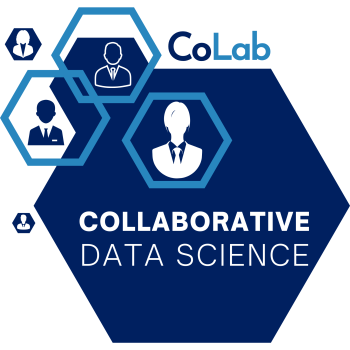
Date: Thursday, March 20, 2025 at 1:00 pm - 2:00 pm ET
The inaugural webinar of the Collaborative Data Science series, co-organized by NISS and CANSSI, featured a compelling discussion on change point detection in climate data. The event brought together Dr. Claudie Beaulieu, Associate Professor of Ocean Sciences at the University of California, Santa Cruz, and Dr. Rebecca Killick, Professor of Statistics at Lancaster University. Moderated by Dr. Emily Casleton from the Statistical Sciences Group at Los Alamos National Laboratory (LANL), the conversation provided valuable insights into interdisciplinary collaboration between statisticians and climate scientists, with a focus on methodological challenges and the communication bridges necessary for impactful research.
This meeting focused on collaborative data science, featuring discussions between climate scientists and statisticians on change point detection in climate data. The speakers shared their experiences in interdisciplinary collaboration, emphasizing the importance of mutual respect and understanding between different fields of expertise. They also addressed methodological challenges in analyzing climate data, including the need to consider autocorrelation and the potential impact of external factors, while highlighting the significance of clear communication and shared learning in successful collaborations.
Collaborative Data Science Web Series Launch
Emily welcomed everyone to the first joint NISS and CANSSI Web series on Collaborative Data Science, expressing gratitude to the speakers and the organizing committee. She explained that the series aims to celebrate interdisciplinary collaboration, featuring two speakers, a data scientist and a subject matter expert from another domain, who have successfully partnered to solve a problem. Claudie Beaulieu and Rebecca Killick, from the University of California and Lancaster University respectively, discussed their journey in collaborative research between climate science and statistics. They highlighted their shared research interests and how they met at the Isaac Newton Institute for Mathematical Sciences in Cambridge, UK.
Climate Change Detection Methodologies
Claudie discussed the collaboration on climate change problems and the need for methodological development for change detection methods. She presented a figure showing global mean surface temperature anomalies from 1850 to 2014, highlighting the past debate about a slowdown in warming. Claudie explained that change point detection methods can help address such questions and account for short-term memory in climate data. Theis was used to introduce the current debate about whether global warming has accelerated, which was a focus of the talk.
Change Point Detection in Statistics
Rebecca discussed the statistical concept of change point detection, explaining that it refers to a location where the statistical properties of data change. They provided examples of changes in mean, trend, and variance. Rebecca also explained the likelihood ratio test used to compare models with and without a change point, and how it can be extended to multiple change points. They introduced the PELT algorithm, which uses dynamic programming and pruning to efficiently solve the computational problem of change point detection.
The importance of statistical model assumptions
Rebecca and Claudie discussed the importance of using appropriate statistical models in climate science. They highlighted common mistakes, such as fitting the wrong model or ignoring autocorrelation, which can lead to incorrect conclusions. They introduced an R package called EnvCpt that automatically fits a suite of models to time series data, including trends, means, and autocorrelation. They also presented a recent paper analyzing global mean surface temperature records to assess whether there has been an acceleration in warming. They used two types of change point models, discontinuous and continuous, with different assumptions about errors and autocorrelation. The goal was not to find the best model but to assess if any of them yield an acceleration in warming after the 1970s.
Temperature Data Analysis and Misinformation
Claudie discussed the analysis of temperature data, focusing on the lack of detected acceleration in warming since the 1970s. . Claudie also presented a figure showing the minimum magnitude required for an acceleration to be detectable, concluding that a change in 2010 was too recent or small to be detected. She emphasized the importance of caution when interpreting short-term changes in temperature trends and clarified that the results do not challenge the fact that human activities cause long-term global warming. Claudie also addressed the spread of misinformation on social media regarding their paper's findings.
Collaborative Ocean Sciences and Statistics
Claudie and Rebecca discussed their successful collaboration in climate sciences and statistics. They emphasized mutual respect, understanding of each other's motivations, and a willingness to learn from each other. They highlighted the benefits of their time zone difference, which allowed them to work efficiently and accelerate their projects. They also shared their experiences at conferences dedicated to bringing statisticians and climate scientists together. Claudie suggested that statisticians should explain their models in terms of physical mechanisms and that climate scientists should acknowledge statisticians' contributions from the start of a project. They concluded by highlighting the importance of finding people who value and respect their expertise.
Time Series Analysis in Climate Data
In the meeting, Emily facilitated a discussion on change points in time series analysis, particularly in the context of climate data. Rebecca and Claudie provided insights on the methods used to identify change points, emphasizing the importance of considering autocorrelation and the potential impact of covariates like El Niño and volcanic activity. They also discussed the challenges of assuming independence across segments and the need for iterative approaches in modeling. Claudie suggested reaching out to people in the field and attending conferences to find overlapping interests. Rebecca advised a PhD candidate seeking a postdoc in time series and climate data analysis to clearly convey their statistical skills and how they can be applied to the new field.
Acknowledgements
We extend our sincere thanks to Dr. Claudie Beaulieu, Dr. Rebecca Killick, and Dr. Emily Casleton for their time, insights, and thoughtful discussion. Their collaboration and expertise exemplify the spirit of this new NISS-CANSSI Collaborative Data Science Web Series. We also gratefully acknowledge CANSSI (Canadian Statistical Sciences Institute) for their co-organization and generous sponsorship of this event.
